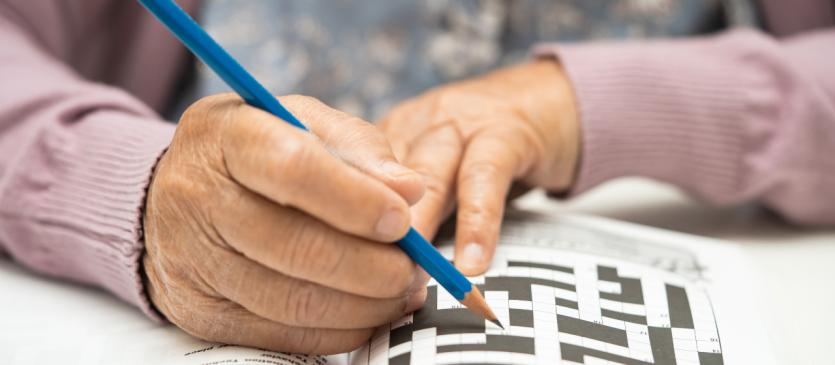As the golden years approach, maintaining cognitive health becomes a crucial aspect of seniors’ overall well-being. Just as physical exercise is vital for keeping the body fit, mental stimulation plays a pivotal role in enhancing brain function and promoting a fulfilling and independent lifestyle. In this month’s blog post, we delve into the significance of mental stimulation for seniors and explore effective strategies to keep their minds active and engaged.
1. Cognitive Health: A Precious Asset
Cognitive health encompasses a range of mental processes, including memory, attention, problem-solving, language skills, and creativity. Just as physical decline is a natural part of aging, cognitive changes can occur too. However, with proactive efforts, seniors can optimize their cognitive abilities and minimize cognitive decline.
2. The Benefits of Mental Stimulation
Engaging in mentally stimulating activities has a multitude of benefits for seniors:
Enhanced Memory: Mental exercises like puzzles, memory games, and learning new skills help maintain and improve memory function, reducing the risk of memory-related issues.
Cognitive Resilience: Regular mental stimulation builds cognitive reserve, enabling the brain to better cope with age-related changes and potential cognitive decline.
Emotional Well-Being: Engaging in enjoyable and challenging activities fosters a sense of accomplishment, boosts self-esteem, and reduces feelings of isolation or depression.
Improved Problem-Solving: Mental exercises encourage seniors to think critically and analytically, improving their problem-solving skills and confidence in decision-making.
3. Strategies for Mental Stimulation
Here are some effective strategies to promote mental stimulation among seniors:
Mindful Activities: Encourage seniors to practice mindfulness meditation, which enhances focus, reduces stress, and cultivates a sense of presence.
Brain Teasers and Puzzles: Crossword puzzles, Sudoku, and other brain teasers offer enjoyable challenges that stimulate cognitive function.
Learning New Skills: Whether it’s picking up a musical instrument, learning a new language, or trying their hand at painting, acquiring new skills keeps the brain active and engaged.
Social Interaction: Regular social interactions, such as joining clubs, participating in group activities, or simply spending time with loved ones, provide cognitive stimulation and emotional support.
Digital Engagement: Embrace technology by using tablets or smartphones to explore brain-training apps, read e-books, or engage in virtual social activities.
4. Fostering a Mental-Stimulation-Friendly Environment
Nixon Home Care recognizes the importance of mental stimulation in promoting seniors’ well-being. Here’s how we create a mentally enriching environment:
Tailored Activities: Our caregivers design personalized mental-stimulation activities based on each senior’s interests, preferences, and cognitive abilities.
Daily Routines: We incorporate brain-stimulating activities into daily routines, ensuring a consistent and enjoyable experience for our clients.
Engaging Conversations: Meaningful conversations and reminiscing sessions with our caregivers provide seniors with cognitive engagement and emotional connection.
Mental stimulation is a valuable tool in preserving cognitive health and enhancing the quality of life for seniors. By integrating a variety of stimulating activities into daily routines, seniors can continue to learn, explore, and grow, contributing to a fulfilling and vibrant lifestyle. At Nixon Home Care, we are committed to nurturing the cognitive well-being of our senior clients, ensuring that their golden years are filled with vitality, joy, and intellectual curiosity.


Leave a Reply